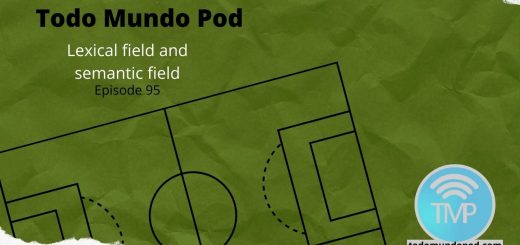Estar, andar and viver as auxiliary verbs in Portuguese

Learn about Estar, andar and viver as auxiliary verbs in Portuguese
Hello there and welcome to our Portuguese Basic Tips about the verbs estar, andar and viver as auxiliary verbs in Portuguese
On today’s podcast, we’ll speak a little bit about Portuguese verbs such as estar, andar and viver used with a different meaning from what you are used to know: today we’ll speak about gerund and auxiliary verbs in Portuguese.
Learn about our previous episode called meaning of peixe fora d’água, tremer na base, estar na fossa and só em espécie
First, let me remind you that verbs in Portuguese gerund are those ending in ando, endo and indo. For instance: falando (speaking), comendo (eating), caindo (falling). The second thing you need to know is that in Portugal people tend to use “a falar”, “a comer” and “a cair” instead of using gerund as we, Brazilians, do.
So, in Brazil, we say: estou comendo. In Portugal, they usually say “estou a comer” and so forth.
As you noticed, we use gerund to indicate that a continuing action, something that is repeated over and over.
For instance:
- Estou comendo (I’m eating). See, I did not finish my meal yet! I don’t even know when I will finish it. It is happening right now!
Ok, what about the verbs “estar”, “andar” and “viver”?
Well, they are normally used as auxiliary verbs in those cases and we’ll practice them a little bit!
Estar and gerund
We use the verb estar accompanied by another verb in gerund, when we want to refer to something that is happening at the present moment.
Let’s see some examples:
- Eu estou dançando (I’m dancing)
- Eu estou comendo (I’m eating)
- Eu estou saindo (I’m leaving)
Andar and gerund
See, most of people know the verb “andar” meaning “to walk”. Here’s another way to use this verb: you can use it meaning something that you didn’t used to do, but now you do it very often.
- Eu ando lendo muitos livros (I’ve been reading a lot of books lately)
- Eu ando cozinhando muitas receitas (I’ve been cooking a lot lately)
- Eu ando arrumando a casa (I’ve been tidying up the house).
See, here it’s implicit the idea that the house used to be a mess, but now it is over!
Viver and gerund
Just like the previous example, we normally know the verb “viver” meaning a different thing. Viver literally means “to live”, right? However, here we understand that as something you do frequently, you always did it. This is not something you start doing lately. Again, you always did it! Even if it that’s not true, you want to emphasize it.
- Eu vivo te chamando para ir à minha casa / I always invite you to come to my house
- Eu vivo tentando fazer dieta / I always try to go on a diet (See: this is not something I start doing yesterday! I live my life and I’m always trying to…)
- Eu vivo torcendo pelo meu time, mas ele nunca ganha /I always support my team, but the guys never win. That’s really true!
Become a Premium Member to download our full transcripts
Learn about verbos auxiliares in Portuguese (Portuguese only)
That’s it for today.
See you soon.
Thanks for listening.
Marcos Sales
Podcast (portuguesebasictips): Play in new window | Download







Recent Comments